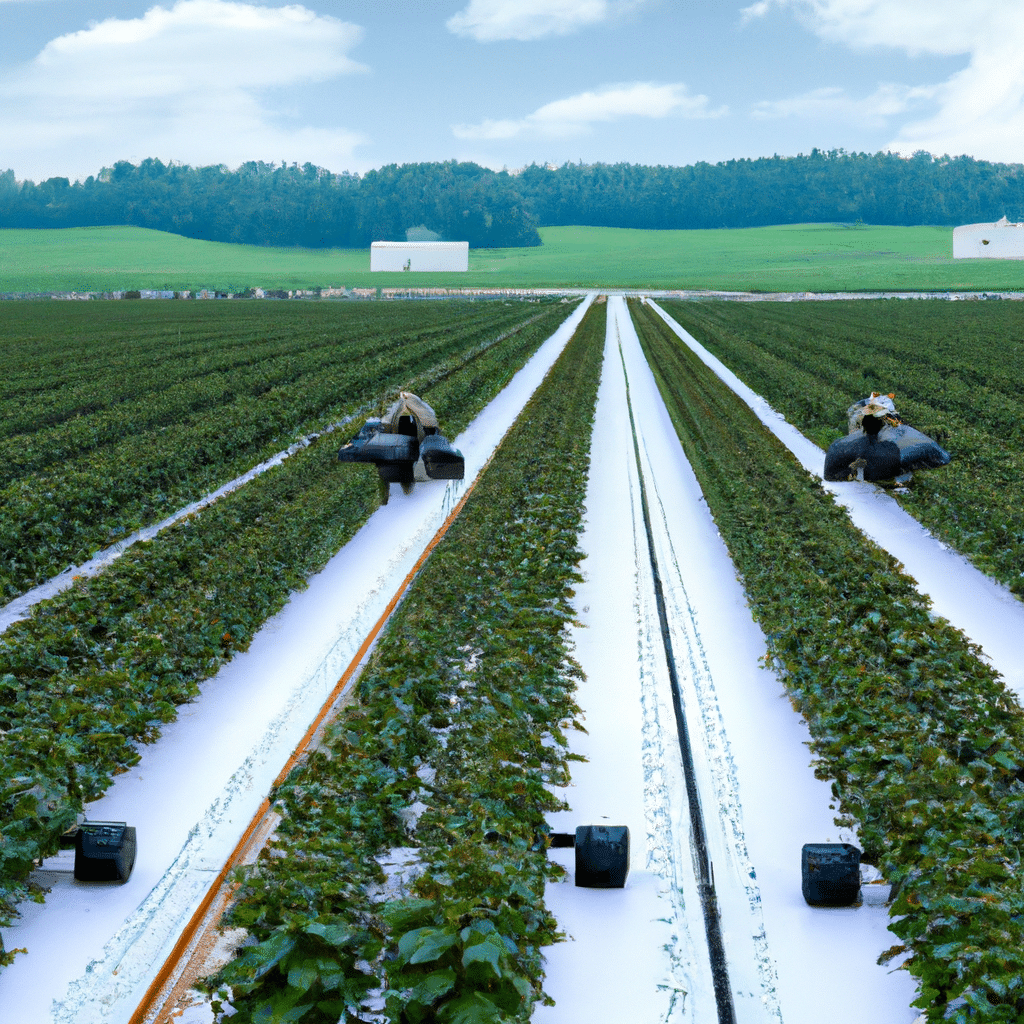AI-powered Agriculture: The Future of Sustainable Farming
As the world’s population continues to grow, the need for sustainable and efficient farming practices becomes paramount. Traditional farming methods have been unable to keep up with the rising demand for food, leading to deforestation, soil degradation, and water depletion. However, with the advent of Artificial Intelligence (AI), the future of farming looks bright. In this article, we will discuss how AI-powered agriculture is revolutionizing the farming industry.

What is AI-powered Agriculture?
AI-powered agriculture is the use of intelligent machines to optimize agricultural practices. These machines collect and analyze data to make informed decisions about planting, harvesting, and fertilizing crops. The machines can also monitor soil moisture levels, temperature, and humidity, ensuring that crops receive the necessary nutrients and environmental conditions for growth.
Benefits of AI-powered Agriculture
Increased Efficiency
AI-powered agriculture streamlines the farming process, making it more efficient and cost-effective. The machines can work 24/7, reducing the need for human labor. They can also perform tasks such as planting and harvesting at a faster rate, increasing productivity.
Improved Crop Quality
AI-powered machines can monitor crop growth and adjust conditions in real-time, ensuring that crops receive the optimal conditions for growth. This leads to higher crop yields and improved crop quality.
Reduced Environmental Impact
Traditional farming methods have a significant environmental impact, with deforestation, soil degradation, and water depletion being just a few examples. AI-powered agriculture reduces this impact by using precise amounts of fertilizer and water, reducing waste and pollution.
More Accurate Predictions
AI-powered machines can analyze data from multiple sources, including weather patterns, soil moisture levels, and crop growth rates. This data can be used to make accurate predictions about future crop yields, enabling farmers to plan and prepare for future harvests.
Examples of AI-powered Agriculture
Precision Agriculture
Precision agriculture is the use of AI-powered machines to collect data on soil moisture levels, temperature, and humidity. This data is then used to optimize crop growth, reducing the need for excess water and fertilizer.
Autonomous Farming
Autonomous farming involves the use of self-driving tractors and drones to plant, harvest, and fertilize crops. These machines can work 24/7, reducing the need for human labor and increasing efficiency.
Crop Monitoring
AI-powered machines can monitor crop growth, identifying issues such as pest infestations and nutrient deficiencies. This enables farmers to take corrective action before significant crop damage occurs.
Conclusion
AI-powered agriculture has the potential to revolutionize the farming industry. The use of intelligent machines can increase efficiency, improve crop quality, and reduce the environmental impact of farming. As the world’s population continues to grow, the need for sustainable and efficient farming practices becomes paramount. AI-powered agriculture provides a solution for meeting this demand while also preserving the environment for future generations.












